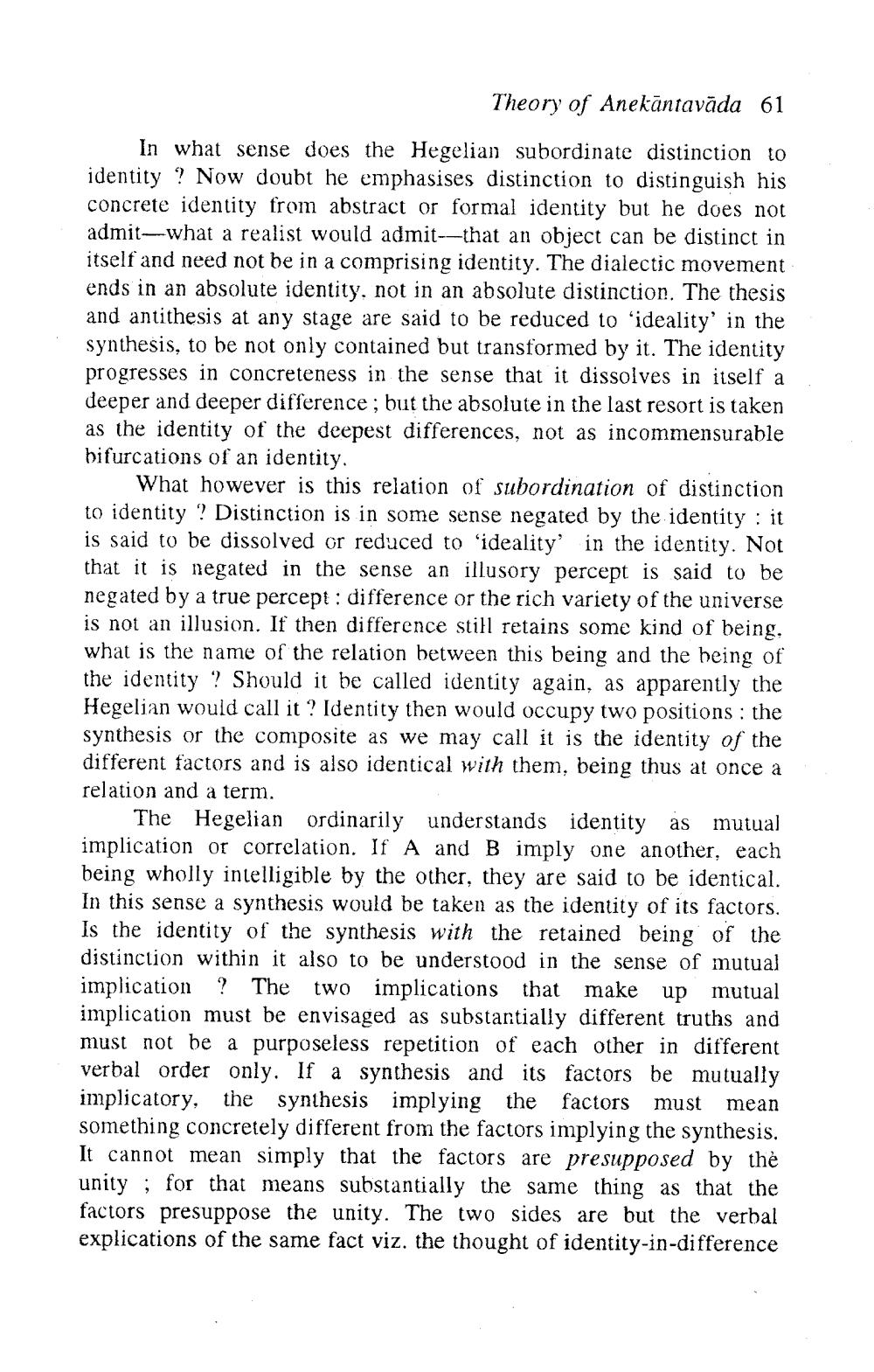________________
Theory of Anekāntavāda 61
In what sense does the Hegelian subordinate distinction to identity ? Now doubt he emphasises distinction to distinguish his concrete identity from abstract or formal identity but he does not admit--what a realist would admit--that an object can be distinct in itself and need not be in a comprising identity. The dialectic movement ends in an absolute identity, not in an absolute distinction. The thesis and antithesis at any stage are said to be reduced to 'ideality in the synthesis, to be not only contained but transformed by it. The identity progresses in concreteness in the sense that it dissolves in itself a deeper and deeper difference; but the absolute in the last resort is taken as the identity of the deepest differences, not as incommensurable bifurcations of an identity.
What however is this relation of subordination of distinction to identity ? Distinction is in some sense negated by the identity : it is said to be dissolved or reduced to 'ideality in the identity. Not that it is negated in the sense an illusory percept is said to be negated by a true percept: difference or the rich variety of the universe is not an illusion. If then difference still retains some kind of being. what is the name of the relation between this being and the being of the identity ? Should it be called identity again, as apparently the Hegelian would call it ? Identity then would occupy two positions : the synthesis or the composite as we may call it is the identity of the different factors and is also identical with them, being thus at once a relation and a term.
The Hegelian ordinarily understands identity as mutual implication or correlation. If A and B imply one another, each being wholly intelligible by the other, they are said to be identical. In this sense a synthesis would be taken as the identity of its factors. Is the identity of the synthesis with the retained being of the distinction within it also to be understood in the sense of mutual implication ? The two implications that make up mutual implication must be envisaged as substantially different truths and must not be a purposeless repetition of each other in different verbal order only. If a synthesis and its factors be mutually implicatory, the synthesis implying the factors must mean something concretely different from the factors implying the synthesis. It cannot mean simply that the factors are presupposed by the unity; for that means substantially the same thing as that the factors presuppose the unity. The two sides are but the verbal explications of the same fact viz. the thought of identity-in-difference




